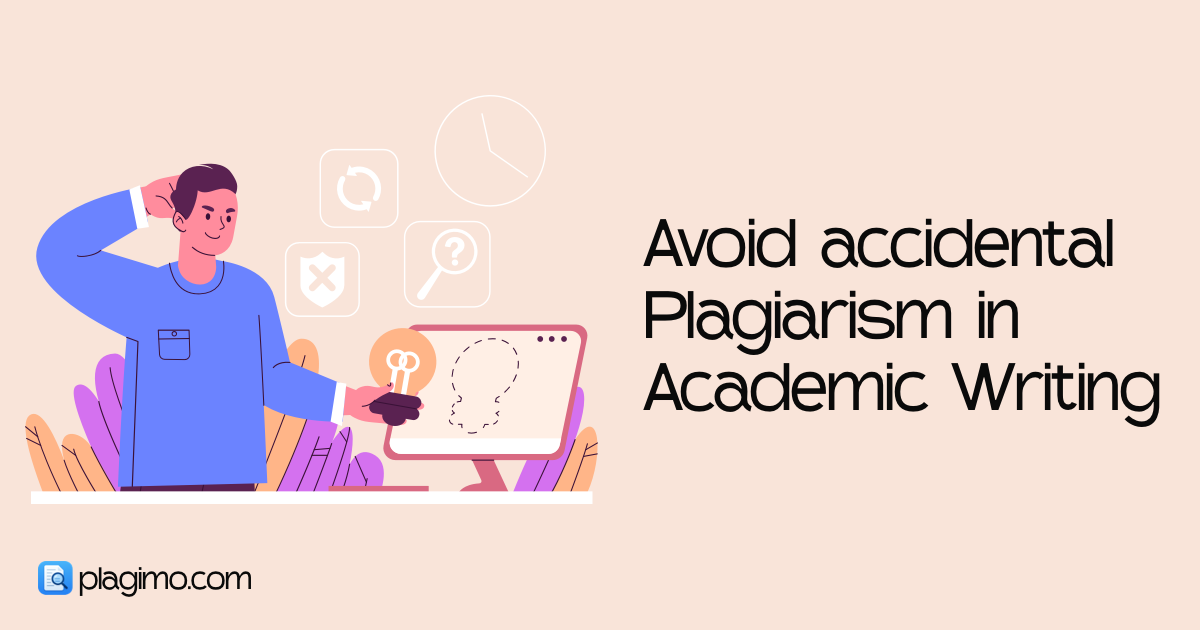
How to Avoid Unintentional Plagiarism in Academic Writing
Learn how to avoid unintentional plagiarism in academic writing with simple strategies for citation, paraphrasing, and originality checks. Discover how tools like Plagimo help students and professionals protect their work quickly and privately.
Ilona Thomas
07 Aug 2025
Whether you're writing a thesis, research paper, or class essay, academic integrity matters. But even with the best intentions, unintentional plagiarism can sneak in through poor paraphrasing, forgotten citations, or unclear use of sources. Fortunately, avoiding plagiarism doesn’t have to be stressful. With the right techniques and tools, you can write with confidence and ensure your work is both original and well-sourced. Here's how to steer clear of accidental plagiarism.
#Keep your writing honest, original, and stress-free
You’re deep into writing a paper. You've done your research, paraphrased carefully, and quoted when needed. Still, there's that lingering doubt. What if you forgot to cite something? What if a sentence is too close to the source?
These moments are common. Unintentional plagiarism can happen to anyone, especially when juggling multiple sources, deadlines, and formatting styles. It doesn’t mean you’re doing something wrong on purpose. It usually comes down to small mistakes, like missing quotation marks or forgetting to include a citation.
Thankfully, there are ways to prevent those slip-ups and write with more confidence.
#What Unintentional Plagiarism Looks Like
Most people associate plagiarism with copying someone’s work outright. But in reality, it can happen even when you’re trying to be careful.
Some common examples include:
Paraphrasing too closely to the original text
Forgetting to cite a source you summarized
Misquoting or changing the meaning of a quote
Reusing parts of your own work without approval
These kinds of errors can affect your credibility, whether you're a student, journalist, or content creator. And while they may not be intentional, the consequences are often the same.
#Practical Ways to Avoid Plagiarism
Staying original doesn’t require perfection. It’s more about being mindful of how you use sources and giving credit where it’s due. Here are a few habits that make a real difference.
#1. Take Notes That Include Citation Details
As you research, don’t just copy useful facts or quotes. Include the author, title, page number, or link every time. That way, when you start writing, you won’t waste time trying to remember where a quote came from.
#2. Paraphrase After You Fully Understand the Material
Paraphrasing is more than just changing a few words. You need to digest the meaning of the source, then explain it in your own voice. This not only helps avoid plagiarism but also shows that you truly understand the material.
#3. Use a Plagiarism Checker Before Submitting
Even with good habits, it's easy to overlook something. Running a quick plagiarism check helps you catch missed citations or phrasing that's too close to your sources. It also gives you peace of mind, especially when the work is important.
If you're looking for a tool that's fast, accurate, and respects your privacy, Plagimo is worth checking out. It’s designed for writers, students, and professionals who want to protect their work without sacrificing speed or security.
Plagimo doesn’t store your documents, doesn't track you, and delivers results in under ten seconds. It works as both a web app and a native macOS app, so you can check your work wherever you write.
Whether you're working on an essay, article, or client project, it's a solid way to stay in control of your content.
#Why It Matters
Originality is about more than avoiding penalties. It's about creating work you can stand behind. When you take the time to properly credit sources and check your writing, it shows respect for your readers and for yourself.
Over time, these habits build trust. Professors, editors, and clients all appreciate writing that's clean, clear, and original.
#Keep It Simple and Stay Safe
Plagiarism can feel like a complicated issue, but the steps to avoid it are straightforward. Stay organized, paraphrase carefully, and double-check your work before submitting. Tools like Plagimo make it easier to stay focused on your message while making sure your writing is your own.
If you're ready to stop worrying about accidental mistakes, give Plagimo a try. There's a free trial, no credit card needed, and it just works — fast, private, and stress-free.
